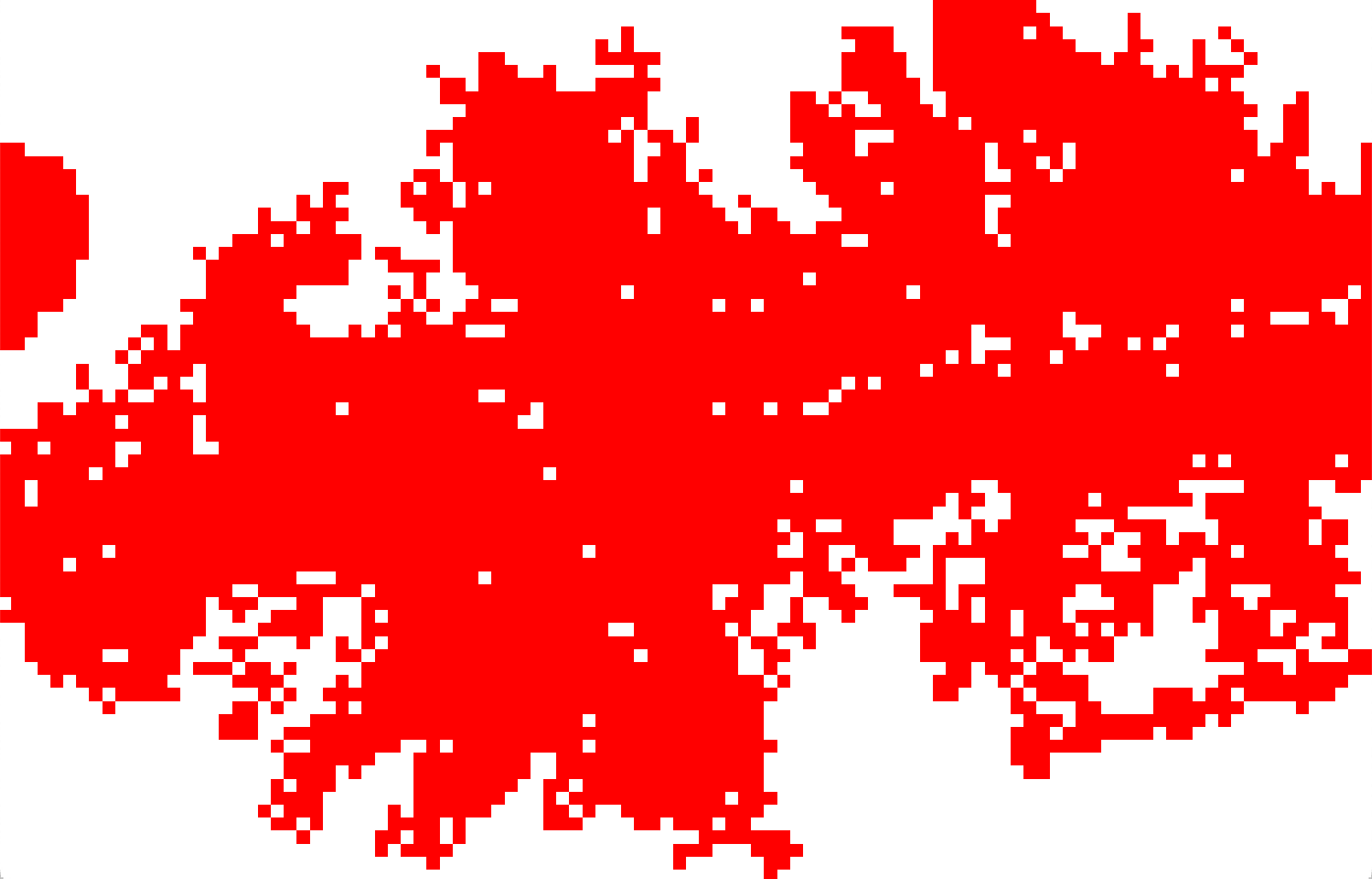A parallelized genetic program for evolving rules that describe a cellular automaton-based wildfire simulation using Clojure and based on the propel framework designed by Lee Spector.
Created by Isaac Caruso, Oliver Baldwin Edwards, and Martin Glusker. Special thanks to Lee Spector for his invaluable assistance and advice. Project inspired by and data sourced from Cell2Fire.
To run:
-
Clone repository
-
Navigate to
src/ring-of-fireand run command:lein run- Note that
lein runwill run the genetic program with the following default arguments:
{:instructions fire-instructions :error-function fire-error-function :max-generations 5000 :population-size 10 :max-initial-plushy-size 40 :parent-selection :lexicase :tournament-size 5 :fire-selection 2 :time-step 3 :step-limit 100} - Note that
-
To run the genetic program with user-defined arguments, add key-value pairs as arguments after
lein run -
Example usage:
lein run :population-size 20 :parent-selection :tournament :max-generations 1000
We sourced our data from Cell2Fire. The data was used to both specify the parameters for instructions in our genetic program (such as the weather data) and to calculate the error in our results (by using the actual final fire scar). Ten fires were provided, each with data of the following type:
| Data File | Description |
|---|---|
Forest.asc |
A grid composed of numeric values identifying the type of terrain occupying each cell. Use fbp_lookup_table as a lookup for each value |
fbp_lookup_table.csv |
A lookup table to take cell values from Forest.asc and translate them into fuel types (includes descriptive names such as "Boreal Sprice" as well) |
Weather.csv |
A table including hourly data from start to finish of the fire with variables such as wind speed (WS) and fire weather index (FWI) |
FinalScarGrid.csv |
A grid displaying the final state of the fully-burned fire, where cells marked 1 were those that burned and cells marked 0 were those that did not |
elevation.asc |
A grid containing elevation values (altitude in meters of the current cell with respect to the sea level) |
slope.asc |
A grid containing slope values (the slope percentage in terms of the vertical rise over the horizontal run and adjacent cells) |
IgnitionPoints.csv |
Contains the value of the ignition cell (note that this cell value is 1-indexed) |
Steps needed to view the output of a selected program on a specified fire:
-
Select program from the output of our genetic program
-
Save the output of that program to a CSV:
- Call the
grid-to-csvfunction incore.clj(make sure theargmappassed in matches the one used to create the program)
- Call the
-
Print out the above generated CSV file:
- Navigate to the
burn-demo.cljfile - Use the
read-in-datafunction to read in your CSV anddefthe resulting output - Change the line that states
def selected-fireto reference your new fire from above - Run the
burn-demo.cljfile
- Navigate to the
-
The difference between the resulting fire and the actual fire can be found by calling
calculate-pct-differenceinburn-demo.cljand passing in the pre-defined fire-scar that corresponds to the output generated
An example of this is the following output that we generated from running the program
'(0 2 NT integer_= boolean_not integer_- NBD integer_% NT integer_= boolean_not boolean_and :split integer_+ integer_%
TB 1 WS BUI BUI integer_= ISI integer_= integer_= integer_* boolean_= NT integer_= integer_* TB integer_= integer_=
slope integer_= FWI FWI integer_% integer_% 1 exec_if (exec_if (exec_if (slope TB slope boolean_not true NT true true
boolean_= true boolean_= 1 1 0 true 1 true NBD :split slope NBD slope integer_* 0 NBD slope slope TB integer_+ 0 slope
slope slope 0 NBD NBD :split integer_* boolean_or 1 boolean_not boolean_not boolean_or integer_% boolean_not boolean_not
boolean_= integer_+ 0 boolean_not integer_+ ISI true boolean_and true true boolean_and true boolean_and :split
boolean_and integer_= true TB integer_= boolean_and boolean_and integer_= true :split true true boolean_and ISI FWI
true true boolean_and false FWI TB true integer_* ISI FWI integer_+ integer_= FWI boolean_and true ISI) (integer_=
integer_* ISI true slope integer_- boolean_and integer_% WD integer_* boolean_not integer_- integer_- integer_= ISI WS
boolean_or boolean_not BUI 1 integer_= integer_- WS BUI ISI) slope boolean_and boolean_or :split integer_+ BUI 1 NBD WS
WS WS integer_+ ISI 1) (boolean_and NBD boolean_and boolean_and exec_if (true 2) (WD exec_if (boolean_and 1 true 2)
(TB exec_if (false 0 true true TB) (TB 1 0 slope exec_if (FWI FWI TB slope 1 WD FWI) ()))))) ()))with the argmap
{:instructions fire-instructions
:error-function fire-error-function
:max-generations 5000
:population-size 10
:max-initial-plushy-size 40
:step-limit 100
:parent-selection :tournament
:tournament-size 5
:time-step 3
:fire-selection 2}on the second Central Kootenay fire:
This program resulted in an 11% error when testing it on k2. However, k2 was part of
our training set, and this program did not generalize to the three fires in our testing set
(errors ranged from 35-43%).
Requires Java SDK 1.8 and Leiningen.
- This software is intended for research use.
-
Icons made by Smashicons from www.flaticon.com


